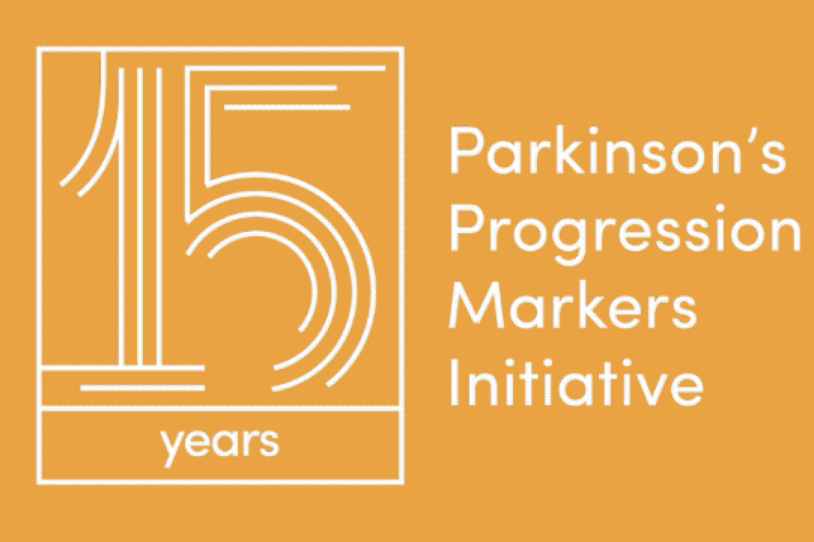
This September marks 15 years since the first participant enrolled in the Parkinson’s Progression Markers Initiative (PPMI), a landmark in Parkinson’s disease (PD) research. PPMI is transforming the understanding of brain disease and providing vital tools to accelerate the development of new therapies. Over the last decade and a half, the study has generated an unprecedented wealth of data and biosamples, fueling scientific discoveries and shaping the design of clinical trials worldwide. PPMI’s impact continues to grow with thousands of volunteers and counting. The study remains committed to finding more answers and driving breakthroughs in the field of Parkinson’s research.
How It All Started
“If not us, who?”
With that rallying call from Michael J. Fox, a pivotal conversation in 2007 sparked what would become a cornerstone of Parkinson’s research. PPMI was launched in 2010 by The Michael J. Fox Foundation (MJFF) in collaboration with dozens of public and private partners to tackle a major challenge in Parkinson’s research: the lack of reliable ways to track disease progression. The initiative set up a global, long-term study that follows people with Parkinson’s, people at risk and people without the disease.
By collecting this information, PPMI provides researchers with the data and tools they need to transform how Parkinson’s is understood, diagnosed and treated. These insights are improving care by reducing the time it takes to find the right treatment and helping people with PD and their families get clearer answers about what to expect. With more accurate tools to identify the right people for the right studies and to measure the impact of potential therapies more quickly, clinical trials are faster, more efficient and more accurate — encouraging greater investment and drawing new partners to the study.
Jen Gaudio, one PPMI's first participants enrolled in 2010, reflected on the significance of her involvement: “Enrolling in PPMI was the best thing in the world for me because I felt like I was contributing to something greater than myself. I wanted my diagnosis to mean something and participating was a way to make that happen.”
A Vision for Research
From the beginning, PPMI has operated on the principle that collaboration accelerates progress. The initiative was founded on the premise that by enabling other studies and applying de-risking strategies, we can speed discovery and amplify impact across the field. By uniting researchers, clinicians and participants worldwide, the initiative has created an open-access data resource that removes barriers, de-risks investment and empowers the scientific community.
PPMI has become the largest and most comprehensive Parkinson’s study of its kind. The study has built an unparalleled collection of clinical, imaging and biospecimen data from over 4,000 volunteers who have completed visits at 50+ medical centers worldwide. More than 46,000 participants have shared information online, and nearly 100,000 have completed smell tests through our remote screening system. This open-access resource has been downloaded over 40 million times, cited in more than 400 scientific publications and informed over 20 clinical trials — fueling discoveries across the globe.
Sohini Chowdhury, chief program officer, MJFF, emphasized: “With the commitment of study participants and collaboration from scientists around the world, PPMI has become a powerful driver of progress in Parkinson’s research. Every year, together, we move closer to the answers we seek.”
Milestones and Accomplishments
One of PPMI’s most significant contributions is the validation of a biomarker for Parkinson’s disease — the alpha-synuclein seed amplification assay. This breakthrough test detects abnormal protein that drives Parkinson’s biology, offering researchers a powerful tool for clinical research aimed at earlier diagnosis, disease tracking and measuring the impact of new therapies.
PPMI also validated the importance of smell loss as one of the earliest signals of Parkinson’s risk, launching a national smell test initiative to better understand the link between sense of smell and brain disease. This simple scratch-and-sniff smell test invites people with and without PD to contribute. People diagnosed within the last seven years, as well as individuals aged 40+ without the disease, can help propel research that could transform how Parkinson’s is detected and treated by taking this simple test.
Beyond discoveries, PPMI continues to shape how Parkinson’s research is conducted. Collected data and study design inform clinical trials — guiding sample size planning, refining trial methods and even serving as control data to better understand disease progression. PPMI data also shed light on the lived experience of Parkinson’s from mood disorders to cognitive changes and dementia, helping researcher designs stronger studies and improve the quality of life for people with the disease.
The study is also pioneering a more equitable research model through its return of research information program, which shares individual data with participants. This approach underscores that participants are true partners in discovery.
Looking Ahead
PPMI continues to evolve, with ongoing research focused on expanding participant diversity, discovering new biomarkers and deepening our understanding of Parkinson’s disease progression. Each year of study not only advances our knowledge but also lays the foundation for a future of precision medicine where treatments can be tailored to the unique biology of each individual living with Parkinson’s, bringing us closer to slowing or stopping the disease.
“We are inspired by how far PPMI has come and deeply grateful to the community that makes this work possible,” said Kenneth Marek, MD, PPMI’s principal investigator since its first days. “Together, we are laying the groundwork for a future where Parkinson’s can be slowed, stopped or even prevented.”
You can be a part of this progress. As PPMI takes on new research questions, scientists are now examining the link between sense of smell and brain disease. By taking a simple scratch-and-sniff smell test, people with and without Parkinson’s can help move this work forward. Request your free test today.
Photo Gallery

Allen Dance, diagnosed with RBD, PPMI participant.

Allie Signorelli, online PPMI participant.

Cindy Roach (to the right) pictured with her husband, diagnosed with RBD, PPMI participant.

Diana Rodriguez, diagnosed with Parkinson's disease, PPMI participant.

Don Upson (to the right) pictured with his son, diagnosed with smell loss, PPMI participant.

Ann and Joe Moore, PD and control PPMI participants.

Marcy Schaeffer, diagnosed with smell loss, PPMI participant.

Linda and Otis Peeples, diagnosed with RBD, PPMI participants.